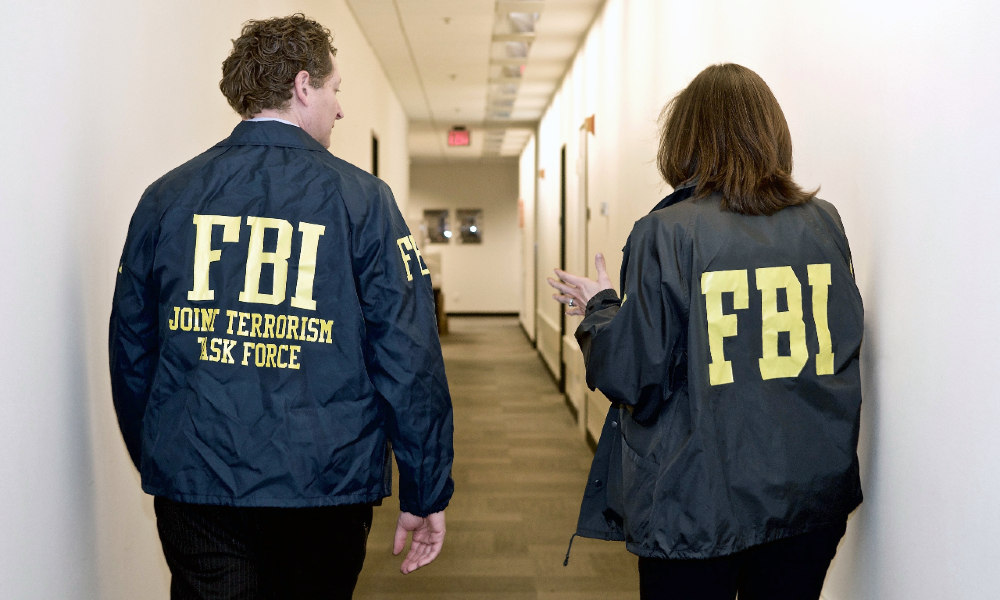Summary: Fourth Circuit Rejects Suspicionless, Forensic Searches of Devices at the Border in United States v. Kolsuz
When the Supreme Court rejected warrantless cell phone searches incident to arrest in Riley v.
When the Supreme Court rejected warrantless cell phone searches incident to arrest in Riley v. California, it emphasized that “many of the more than 90% of American adults who own a cell phone keep on their person a digital record of nearly every aspect of their lives,” and that “allowing the police to scrutinize such records on a routine basis is quite different from allowing them to search a personal item or two in the occasional case.” That powerful recognition of the privacy interests implicated by electronic devices promptly raised the question whether courts should rethink the way that other warrant exceptions apply to cell phones, laptops, and the like (the Ninth Circuit has since applied Riley to vehicle and probation searches).
On May 9, in an important extension of the Supreme Court’s logic, the Fourth Circuit ruled that authorities may no longer conduct forensic searches of electronic devices at the border without some degree of individualized suspicion. The decision limits the sweeping Fourth Amendment latitude the government has traditionally enjoyed at the border, though it leaves open significant questions about the full scope of travelers’ privacy rights in the devices they carry with them.
United States v. Kolsuz involved a traveler found with firearm parts in his luggage and charged with arms smuggling. After defendant Hamza Kolsuz was detained at Washington Dulles International Airport, officers with Customs and Border Protection (CBP) took his phone, manually examined his recent communications, and then transported the device elsewhere for intensive forensic review. That month-long search, per the court, “yielded an 896-page report that included Kolsuz’s personal contact lists, emails, messenger conversations, photographs, videos, calendar, web browsing history, and call logs, along with a history of Kolsuz’s physical location down to precise GPS coordinates.” While he chose not to challenge the manual search or the seizure of his phone, Kolsuz moved to suppress the forensic report on the grounds that investigators should have been required to obtain a warrant first. After the district court denied the motion and (relying in part on the report) convicted him at trial, Kolsuz appealed the denial.
While warrantless searches are typically “unreasonable” within the meaning of the Fourth Amendment—and therefore unconstitutional—the government maintained that the search of Kolsuz’s phone came within the border search exception to the warrant requirement. In light of the significant sovereign interest in controlling national entry and exit, the Supreme Court has held that some searches “are reasonable simply by virtue of the fact that they occur at the border,” even if conducted without a warrant—and regardless whether authorities have any reason to suspect the search will turn up evidence of crime or contraband. Kolsuz mounted two arguments in response: that the border exception didn’t extend to his case, or, in the alternative, that forensic device searches fall within the category of “highly intrusive” or “nonroutine” border searches that require greater individualized suspicion than a search of checked luggage would.
Should the Border Exception Apply with Full Force to Electronic Devices?
Kolsuz advanced several theories why the border exception didn’t reach the facts of his case. A few of these the Fourth Circuit disposed of quickly. While Kolsuz had stressed in the district court that that the search was carried out far from the airport, long after his attempted crossing, this argument from a “physical or temporal remove” has consistently lost in other courts, and he conceded the point on appeal. And while Kolsuz contended that the search was better understood as a search incident to arrest—since he was, in fact, arrested—the Fourth Circuit noted that its precedents had applied the border rule to other cases involving detained travelers.
But the court took more seriously Kolsuz’s objection that applying the exception to his cell phone would “untether” the rule from the rationale that supports it. As he arguedand the panel acknowledged—“the scope of a warrant exception should be defined by its justifications.” The Supreme Court has traditionally justified forgoing warrants at the border on the theory that “[t]he Government’s interest in preventing the entry of unwanted persons and effects is at its zenith” in that context, citing in particular the need to intercept contraband. That rationale may apply with full force to the search of a traveler’s physical baggage for illicit goods, Kolsuz suggested, but not examination of his devices and personal data in pursuit of ordinary evidence—much as the Riley had concluded that a law enforcement officer’s interest in determining whether an arrestee is carrying a dangerous weapon does not justify searching her phone (which can’t contain one).
At least two judges on other circuit courts have signaled interest in this line of thinking. In March, when the Fifth Circuit confronted but managed to avoid the same question, Judge Gregg Costa wrote separately to emphasize that contraband detection, “the strongest historic rationale for the border-search exception[,] . . . would not seem to apply to an electronic search of a cell phone or computer.” That same month, Judge Jill Pryor dissented from a contrary Eleventh Circuit ruling, emphasizing that “the rationales underlying the border search exception lose force when applied to forensic cell phone searches” because those searches “are ill suited to prevent the type of contraband that may be present on a cell phone from entering into the United States.”
But the Fourth Circuit rejected the argument, at least as applied to Kolsuz. While the court granted that “even a search initiated at the border could become so attenuated from the rationale for the border search exception that it no longer would fall under that exception,” it emphasized that the government had “good reason to believe, in the form of two suitcases filled with firearm parts,” that Kolsuz was engaged in “a transnational offense that goes to the heart of the border search exception.” (As Orin Kerr notes, if the Fourth Circuit is contemplating case-by-case adjudication of the interests at stake in every challenged border search to determine whether the warrant exception applies, that would seem a departure from the Court’s preference, per Riley, “to provide clear guidance to law enforcement through categorical rules.”).
When Are Border Searches of Electronic Devices Unreasonable?
That left Kolsuz’s argument that, even if the search of his phone was properly considered a border search, it was constitutionally unreasonable because it failed to meet the heightened standards that apply to especially invasive, “nonroutine” border searches. As the Fourth Circuit noted, “border searches of luggage, outer clothing, and personal effects consistently are treated as routine, while searches that are most invasive of privacy—strip searches, alimentary-canal searches, x-rays, and the like—are deemed nonroutine and permitted only with reasonable suspicion.” Kolsuz argued that forensic searches are even more invasive than these, relying on Riley’s recognition of the extraordinary volume of personal data that cell phones typically carry.
Even before Riley was decided, the Ninth Circuit sitting en banc concluded that forensic computer searches are intrusive enough—and the privacy interests at stake substantial enough—to justify imposing a reasonable suspicion requirement. And in the Fourth Circuit’s view, Riley decisively foreclosed the argument that suspicionless forensic searches satisfy the Constitution, noting that “the impact of Riley is plain enough that the government’s brief does not seriously contest this point.” The panel emphasized, too, that the search qualified as nonroutine and highly intrusive even though Kolsuz’s phone was examined while in airplane mode, such that investigators had no access to information he might have been maintaining in remote storage. But the court ultimately declined to reach Kolsuz’s boldest argument—that Riley worked such a sea-change that forensic device searches should require a full-blown probable cause warrant, even if they would normally fall within the justifications for the border exception.
Here, Kolsuz’s case ran aground on the good-faith exception to the exclusionary rule. As the panel emphasized, under the Supreme Court’s 2011 decision in Davis v. United States, a defendant can’t win suppression of evidence obtained in violation of the Fourth Amendment if investigators acted “in reasonable reliance on binding precedent.” Because no court has imposed a probable cause requirement for device searches at the border, the Fourth Circuit noted, CBP couldn’t have known that it needed more than reasonable suspicion. And because CBP had reasonable suspicion to search Kolsuz, the outcome would be the same—he loses—whether the constitutional standard is reasonable suspicion or probable cause. (The court rejected Kolsuz’s argument that CBP needed reasonable suspicion that the search would turn up contraband rather than evidence, observing that this point was essentially identical to his argument against applying the border exception in the first place). Since announcing the standard going forward wasn’t necessary to decide Kolsuz’s case, the Fourth Circuit opted to avoid answering what the appropriate measure of Fourth Amendment rights at the border is.
Open Questions, and More to Come
It seems increasingly likely that the Supreme Court will need to resolve whether device searches at the border require suspicion or judicial process, and if so how much of each. The frequency of these searches has risen sharply under the Trump Administration, but no consensus has emerged from the circuit courts. The Ninth Circuit continues to follow Cotterman; the Eleventh Circuit recently rejected a warrant requirement, but declined to address whether reasonable suspicion might be required; the Fifth Circuit recently dodged the question entirely (because whatever the appropriate standard, the investigators in that case had probable cause); and the Fourth Circuit now has Kolsuz. The First Circuit will eventually have a chance to address the issue too, given that the federal district court for Massachusetts denied the government’s motion to dismiss a civil challenge to CBP’s policies earlier this month. That lawsuit, Alasaad v. Nielsen, raises a number of issues that deserve their own treatment, including whether the First Amendment imposes further limits on searches of expressive material.
Kolsuz also expressly reserved the question of what standard should govern manual device searches—where a manual search “do[es] not entail the use of external equipment or software,” and a forensic search does—because Kolsuz challenged only the forensic search of his phone. Pre-Riley Fourth Circuit precedent approves such searches without suspicion, as does the Ninth Circuit’s decision in United States v. Cotterman. The influential Maryland district court opinion in United States v. Saboonchi justified this two-tiered approach on the theory that manual searches can only invade as much privacy as a law enforcement officer has time to invade, whereas a forensic search can be conducted off-site, at leisure and entails making a lasting copy of the data searched. However persuasive that rationale, Riley seems to undermine the distinction; the case itself involved a pair of manual cell phone searches. But post-Riley opinions on the question remain sparse, and the good-faith exception makes precedent development difficult.
While Kolsuz clearly points these debates toward greater privacy protection, its practical impact is hard to judge. Judge Wilkinson, concurring only in the judgment, warned that courts that impose constitutional restraints on border searches “are taking chances with the safety and lives of our fellow Americans.” By comparison, the district court in Alasaad echoed the Saboonchi court’s suggestion that requiring reasonable suspicion for forensic searches would have little to no impact on the ground. This on the theory that “[c]ustoms officials do not have the time or resources—or, most likely, the inclination—to perform random or suspicionless forensic searches.” But whichever judgment is closer to the mark, the doctrine would plainly benefit from a “Riley moment,” as Kerr puts it, to reset precedent against a new technological backdrop.





